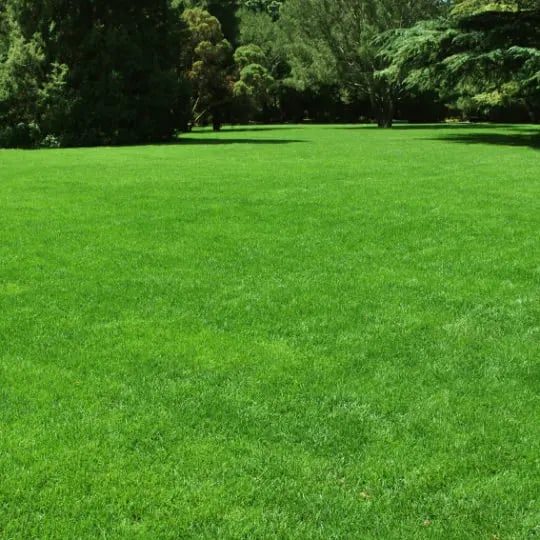What You Need to Know About Organic Fertilizer

In an increasingly “green” world, more and more people are seeking alternatives to chemicals when tending to their lawns. Obtaining their nutrients from microbes, organic wastes, and other naturally occurring materials, organic fertilizers are becoming a popular method of lawn care as they provide benefits to plants and soil without harmful effects on the environment.
What is in organic fertilizer?
All fertilizers contain three essential nutrients to plant growth: nitrogen, phosphorus, and potassium. While these nutrients can be synthesized, they can all be found in nature.
- Nitrogen: As organic matter breaks down, it releases nitrogen into the soil, which helps keep crops green and assists in plant productivity. Good natural sources of nitrogen for fertilizer can be found in yard waste, kitchen scraps, animal manure, and blood meal.
- Phosphorus: Present in all living cells, phosphorus is absorbed through the roots of plants to help them convert sunlight and other nutrients into food. Animal manure and bone meal (usually made from the pulverized bones of cows) are popular organic forms of phosphorus.
- Potassium: One of the most abundant elements available, potassium is imperative to healthy plant growth. Organically, it is most often found in wood ash, the stalks of dead or rotting plants, and in the blood meal, muscles, skin, and organs of mammals.
What are the benefits of organic fertilizer?
Organic fertilizer feeds your plants while building the soil. This provides long-term benefits and solutions for your lawn.
Organic matter nurtures a plant’s growth by promoting healthy root development. Soil microbes help convert organic fertilizers into soluble nutrients that the plant absorbs as food. It provides secondary and micro-nutrients your plants need. While it typically contains less nitrogen, phosphorus, and potassium than chemical-based fertilizer, it feed plants for a longer period of time. While organic fertilizer takes longer to work, it yields long-term rewards.
Organic materials stimulate beneficial soil microorganisms and improve the structure of the soil, giving it a loose, airy consistency and allowing it to holds more moisture and nutrients. If soil is fed only with chemicals, its structure deteriorates after time, which causes it to lose its organic matter and microbiotic activity. It’s less capable to hold water and nutrients, resulting in the need to be fed more frequently.
For further assistance in tending to your lawn the natural way, call Green Lawn Fertilizing at 855-469-0692. We’re here to help you achieve a beautiful yard. Call us today for more tips and tricks to keep your lawn looking its best with organic methods.